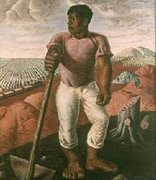Brazil is regarded as one of the largest coffee producers in the world today, controlling more than 30% of the country.
Brazilian coffee brands are keen to make the best coffee. Brazil can be regarded as one of the largest coffee producers in the world today, controlling more than 30% of international production.
The Brazilian Coffee Company is famous in the world. The coffee factory originally from Etiopia was originally brought to Brazil by some French settlers. From northern Brazil, coffee fields began to spread across the country, concentrated in coastal areas. From 1820 to 1840, coffee began to account for the largest export volume of Brazilian products; Brazil became the world's largest exporter of coffee. The climatic conditions in Brazil seem to be made for growing grains. The biggest buyers of Brazilian coffee today are Germany, the United States, Italy, Japan and Belgium. Brazil is not only the world's largest exporter of coffee, but also one of the largest consumers.
Coffee cultivation, Brazil
Brazil provides rich soil and a humid climate, and coffee plants thrive. The low elevations of Brazil contribute to the production of Arabica coffee beans and robusta coffee beans, but the crops are mainly Arabica coffee, mainly dry processing. In northern Brazil, the terrain is flatter and the climate is hotter, obscured by more direct sunlight, and is where Robusta grows. Robusta coffee beans are used in instant coffee and are generally considered to be of poor quality. Robusta accounts for about 20% of Brazil's annual output. The best Arabica coffee is considered a higher-grade Brazilian coffee, grown in the higher terrain of southern Brazil. About 80% of the coffee is Arabica coffee. Brazilian coffee trees blossom three times a year and begin to harvest soon afterwards. Coffee beans are then classified from high quality to lower quality in order to be better mixed into mass production.
Brazilian coffee brand
Because many large commercial companies sell and sell Brazilian coffee brands today. The name of Brazilian coffee is well known and very popular. Many personal brands can be sold in large stores, markets and online. There are many popular coffee brands in Brazil, but some of the most popular coffee brands are Caf é Pilao, Caf é doPonto, Brazilian Santos,Cafe Melitta, Caf é BomDia, Cafe Caboclo and 3 Coracoes.
Brazilian coffee companies are keen to make the best coffee.
Important Notice :
前街咖啡 FrontStreet Coffee has moved to new addredd:
FrontStreet Coffee Address: 315,Donghua East Road,GuangZhou
Tel:020 38364473
- Prev

Analysis of graded Flavor Classification system of Brazilian Coffee Bean
Brazilian coffee is getting worse. Quantity exceeds quality, you may hear people say. But there are a lot more beans than most people think. So, as a Brazilian coffee lover and third-generation coffee producer, I will share with you five things you should know about coffee in this country. Some of them may surprise you that Brazilian coffee is better than you think.
- Next

The coffee grown in Brazil is mainly Arabica coffee, accounting for 80% of the total output, which is the largest coffee.
Some of the most popular coffee in the world comes from South America, and perhaps no country in the region is better than Brazil. Brazil has been the largest participant in the international coffee trade since the 1840s. Today, the country produces 40 to 60 million bags a year and is the world's largest exporter of instant coffee. Brazil has an estimated 300000 coffee plantations in 13 states. Brazil
Related
- Beginners will see the "Coffee pull flower" guide!
- What is the difference between ice blog purified milk and ordinary milk coffee?
- Why is the Philippines the largest producer of crops in Liberia?
- For coffee extraction, should the fine powder be retained?
- How does extracted espresso fill pressed powder? How much strength does it take to press the powder?
- How to make jasmine cold extract coffee? Is the jasmine + latte good?
- Will this little toy really make the coffee taste better? How does Lily Drip affect coffee extraction?
- Will the action of slapping the filter cup also affect coffee extraction?
- What's the difference between powder-to-water ratio and powder-to-liquid ratio?
- What is the Ethiopian local species? What does it have to do with Heirloom native species?

